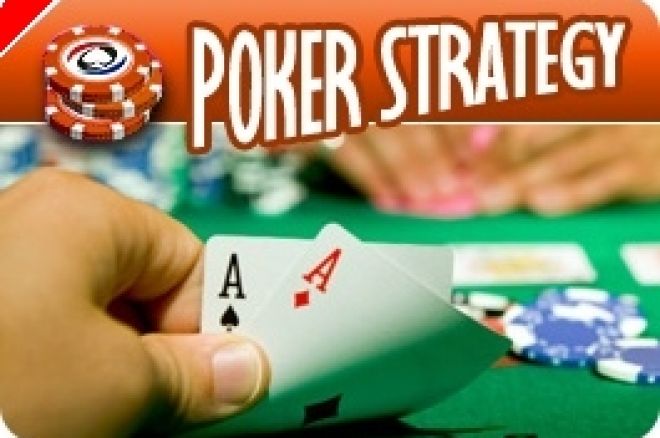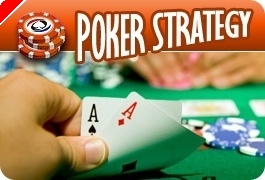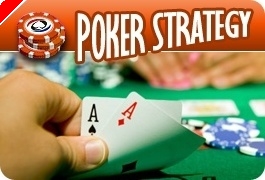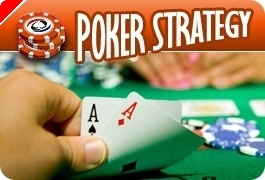Stud Poker Strategy: K.I.S.S. -- Keeping it Simple, Stupid

I'm leaving for the World Series of Poker today, June 28th. I'll be playing in the H.O.R.S.E. tournament tomorrow, Sunday. I'm excited, but realistic. Even so, it's a heady thing to contemplate – playing among the best of the world. I'm looking forward to it.
Being gregarious, I get into many conversations about poker – especially now that my thoughts are fueled by the poker excitement that awaits me. I had a conversation today that forced me to return to basics in my thinking. Let me share some of what I discussed.
I was talking to a non-poker player. That's not to say that she didn't know how to play at all. She did; I didn't have to teach her the basic rules. She had played five-card draw as a child and a little stud and hold'em when she was in college. But she didn't play regularly and didn't even watch it on TV – though she had seen a show once or twice.
She asked me if poker was indeed a game of skill or whether it was really just a lot of luck. I explained that it was a game of skill, though luck was surely a major factor in the short run. She wasn't satisfied with that quick explanation and asked me to elaborate. She pressed me to give her a few pointers that she might remember if she were ever to sit down to play with her friends.
At first I was reluctant to answer. I mean, it was insulting, in a way, to expect me to be able to give her a simple capsule of an answer about poker strategy when I've written over a million words on the subject. But then, I realized that it's sometimes helpful to be forced to be very simple and very brief. So I decided to give her the five most elementary considerations for winning poker.
Play High-quality Starting Cards
I explained that experts can win sometimes regardless of their cards. But before you become an expert you'll need to understand how some hands have a better probability than others of improving to winning hands. It's like learning to draw a realistic still life before becoming an abstract artist, I explained. You need to learn relative hand values before you can become adept at learning the more advanced techniques of bluffing, trapping, slowplaying, semibluffing, etc.
Learn the Simple Math — Pot Odds and Drawing Odds
A good player must understand how to compare the amount he will win in a given hand, if he wins it, to the chances that he will improve his hand to a winning hand. This is simple lesson that cannot be skipped if you're going to get any good at poker. It's true that an expert needs to understand implied odds, fold equity, and the like. But before he can fully understand any advanced concepts like that he must first be able to quickly and accurately estimate whether the pot is and is likely to be large enough to justify calling a bet.
Do Not Put More Money in a Pot Just Because You are in It Already
This is often stated as, "Don't throw good money after bad." And it's yet one more example of a poker expression that has entered the general lexicon. It is a skill of self-control, more than anything else. It comes into play when a player who may have started out with a good chance of winning, recognizes that because of the way the hand is being played or the way the cards continue to be dealt in the hand or both, it makes sense to fold. Many a bankroll has been lost because an otherwise good player fell in love with a hand that had gone south.
Bluffing is Overrated – Especially Among Poor Players or in Limit games
Bluffing is certainly part of poker. But bad players are usually bad because they tend to call too much and fold too infrequently with bad or mediocre hands. You don't exploit this weakness by bluffing them but by playing better hands than they have. In limit poker, where the size of the bet is frequently only a very small percentage of the pot, even good players will call bets because of the good pot odds they are being offered. Too often, beginning or otherwise unskilled players, bluff too often, thinking it is something that poker players should do, only to be called, losing a bet they might have saved had they only checked.
Look for Players Who are Less Skilled Than You
Playing poker, for any serious money, shouldn't be like buying a house. You don't want to be the worst house in the nicest neighborhood. You want to be the castle in the slum if you can. There's no prize for playing in the toughest game. Find games with soft players whom you can exploit; this is where you'll make your money. If you want tough competition so you can learn how to get better, then pay for some lessons, as they'll be cheaper.
. . . .
There were many more things I could tell her, as in implied odds, tells, about not playing when tired, about drinking, about not getting cheated, about recognizing an unprofitable rake, about comps, about recognizing her image in the minds of her opponent, about learning all the rules first, or about any number of things that a truly excellent player needs to learn. But I didn't want to overwhelm her. And I wanted to be brief. So I left it at just these five basic tools. Looking over it, I'm pleased with my work. I'd be interested in knowing your thoughts on the matter as well. If you only had five things you could teach to a new player, what would you put on the list?








